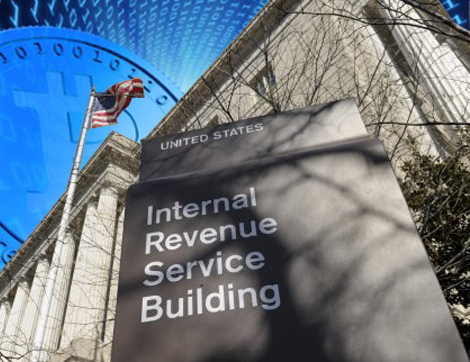
• Revenuers acknowledge popular electronic currencies as ‘assets.’
By Keith Johnson —
If you can’t beat it, tax it. At least that’s the conclusion the Internal Revenue Service (IRS) seems to have reached with regard to bitcoin, the world’s most popular form of decentralized digital currency. On March 25, the IRS ruled that bitcoin and its rivals will now be treated as taxable assets like stocks, bonds and other investment vehicles.
“In some environments, virtual currency operates like ‘real’ currency, but it does not have legal tender status in any jurisdiction,” the IRS stated in a recent press release. “Virtual currency is treated as property for U.S. federal tax purposes,” they said, adding that “general tax principles” apply to virtual currency transactions the same way they apply to other kinds of property.
While this move has been met with mixed reactions from the bitcoin community, most of those who spoke to this AMERICAN FREE PRESS reporter see it in a positive light. Among them is Angelina Pluzhnyk, who heads up operations for Bitcountant, an accounting firm that provides bookkeeping and tax services to those who buy, sell and invest in bitcoin.
“The IRS [finally] recognizes the great potential of bitcoin and other crypto-currencies,” Ms. Pluzhnyk told AFP. “This is good news for individuals and businesses that hold a virtual currency” as a long-term investment.
Ms. Pluzhnyk went on to explain that assets held for more than a year will be treated as capital gains under the new IRS ruling, which means they qualify for the much lower capital-gains tax rate of 20% rather than the ordinary income tax rate of 39.6%.
“For a long time, businesses and individuals in the U.S. did not have guidance regarding virtual currencies,” she added. “Everybody had to make a judgment call and stay consistent with the decisions they made. We now have a better idea regarding the regulatory environment we have to operate in.”
Many business owners that accept crypto-currencies as a method of payment for their goods and services are also taking the IRS ruling in stride, including Michael Cargill, owner of Central Texas Gun Works, the first retailer in the U.S. to accept bitcoin for firearms purchases.
“I actually anticipated something like this to happen” and “see it as a good thing,” Cargill told this newspaper. “I think we’ll see the price [of bitcoin] go up and people will view it as more legitimate now that the IRS has weighed in.”
Mr. Cargill’s optimism is in stark contrast with naysayers like New York tax attorney Jeffrey Hochberg, who recently told CNNMoney that bitcoin’s fluctuating value “would obviously create an accounting nightmare for taxpayers and may cause taxpayers to avoid using virtual currency.”
According to Cargill, such concerns are overblown and can be avoided if merchants simply follow his method of transacting business.
“I use a merchant services company,” he said. “If the price of a firearm I’m selling is $500, [my customer] is going to pay the bitcoin equivalent through that company, which will turn around and pay me in cash. That helps me avoid any complicated financial issues or problems with the IRS.”
Asked if there are any advantages to using bitcoin over conventional payment methods, Cargill replied: “Bitcoin is a more secure way to make transactions because it enables people to become their own bankers. When a person pays by credit card, their information is shared with a lot of third parties and opens them up to a risk of having their identities stolen.”
Though bitcoin offers a more discreet way to purchase firearms, Cargill stressed that it does not exempt buyers and sellers from compliance with federal and state gun laws.
“We still have to call the FBI, do a background check and fill out the required 4473 form,” he said.
Die-hard supporters like Cargill have helped bitcoin weather many recent setbacks, including one that occurred last February when Mt. Gox—once the largest bitcoin exchange—was forced into bankruptcy after losing $450 million worth of bitcoin due to alleged mismanagement and a series of cyber-hacking attacks.
As a result, bitcoin critics like Michael Hiltzik of the Los Angeles Times opined that the Mt Gox affair was representative of “deep-seated problems in the bitcoin system” and that the alternative currency was therefore not “ready to serve as anything but pieces in a very risky, speculative game.”
Of course that makes about as much sense as blaming the U.S. dollar for being stolen from a bank. One who shares that sentiment is Nathan G. Roach, an attorney in San Antonio, Texas and one of a few in the nation that accepts bitcoin as payment for legal services.
“Any monetary or value system is going to have problems,” Mr. Roach told AFP. “If you look at the Enron collapse, people weren’t saying that this proved that all stocks were bad investments. That was a situation where you had one bad actor doing something fraudulent in a manner that harmed certain investors. I don’t think [Mt. Gox] is all that different.”

Keith Johnson in an investigative journalist and creator of the Revolt of the Plebs.

